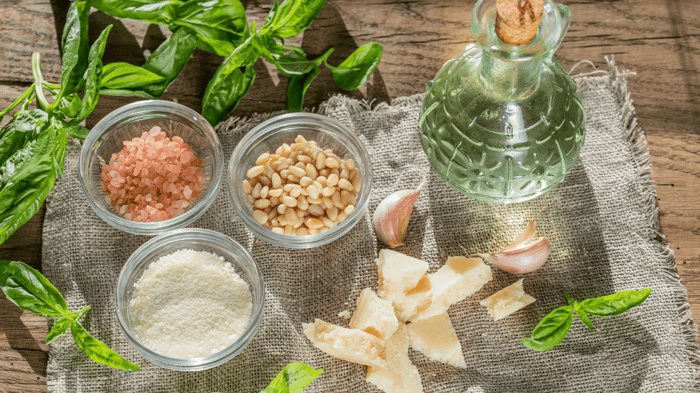Table of Contents
When it comes to self-care, most people are quick to check what’s in their skincare serums, their hair products, or even the snacks they buy at the grocery store. But there’s one area that too often gets overlooked: feminine care.
The truth is that what goes on and around your vulva matters just as much as what you put on your face or inside your body. And here’s the catch—many personal care products still rely on hidden chemicals that don’t belong anywhere near sensitive skin.
Clean ingredients matter because they protect intimate health without disrupting the body’s natural balance. They minimize the risk of irritation, dryness, or infections, and instead support comfort, confidence, and long-term well-being. Choosing wisely isn’t about indulging in luxury—it’s about protecting your health in one of the most delicate ecosystems of your body.
Why Clean Ingredients Are the Real MVP in Feminine Care
Think of your vulvovaginal area as its own finely tuned ecosystem. The skin is thinner, more sensitive, and more absorbent than almost anywhere else on the body. That means whatever you put there—whether it’s in a wash, wipe, pad, or even the dye in a pantyliner—has a much higher chance of being absorbed and interacting with your body.
Protecting Delicate Skin
The vulvar region is not built to deal with sulfates, parabens, or synthetic fragrances. Those might work fine in a dish soap, but on intimate skin? They can trigger redness, itching, and persistent discomfort.
Plant-based ingredients like aloe vera or chamomile offer a much gentler cleanse. Instead of stripping away natural oils, they soothe and hydrate. If your intimate wash leaves you feeling dry or tight, that’s a red flag—it probably contains sulfates or alcohol. Clean ingredients keep moisture where it belongs: in your skin barrier.
Let’s put it simply:
Synthetic fragrance → dryness and itching
Sulfates → stripped oils and irritation
Organic aloe vera → hydration and soothing
Chamomile extract → calm, comfort, balance
By swapping chemical-heavy products for clean alternatives, you’re not just treating symptoms—you’re preventing them.
Maintaining Natural pH Balance
Your vagina is a chemistry whiz. It keeps itself slightly acidic, with a pH between 3.8 and 4.5, which supports beneficial bacteria like lactobacilli. These good bacteria are like your body’s natural security guards, keeping infections like bacterial vaginosis or yeast overgrowth at bay.
But harsh soaps or alkaline washes? They kick those security guards out of the club. Suddenly, irritations and imbalances start to creep in.
A pH-balanced feminine wash helps keep your microbiome thriving. Gentle formulas with lactic acid or natural oils cleanse without destroying the protective barrier. By contrast, washes packed with parabens, dyes, or alkaline chemicals can sabotage that balance, leaving you more vulnerable.
Maintaining your vaginal pH isn’t just about daily comfort. It’s about protecting long-term reproductive and urinary health. When your ecosystem is in balance, everything from odor control to infection resistance works in your favor.
Supporting Long-Term Health
We tend to think of feminine care as a daily choice—but the truth is, it’s also a long-term investment. Just like using sunscreen protects your future skin, using clean feminine products protects your future intimate health.
Studies show that repeated exposure to synthetic chemicals can accumulate over time, leading to heightened sensitivity or hormone disruption. On the other hand, choosing clean, natural formulations lowers the risk of irritation now and later.
When you choose organic cotton pads, fragrance-free liners, or washes with plant-based ingredients, you’re doing more than solving a short-term issue. You’re aligning your daily choices with your body’s long-term needs.
The Dirty Truth: Common Harsh Chemicals and Their Effects
If you’ve ever flipped over a bottle of feminine wash or a pack of wipes and felt like you were reading another language, you’re not alone. Many products are loaded with chemical names that most people can’t pronounce—let alone fully understand.
Here’s what you should know about the usual suspects:
Synthetic Fragrances: Smelling Fresh at a Cost
Synthetic fragrances are marketing darlings. They give products that have a “clean” scent, which people often associate with freshness. But behind that fresh smell are often dozens of undisclosed chemicals, some of which can cause allergic reactions or irritation.
Fragrance compounds like diethyl phthalate can slip past the skin’s barrier more easily in the vulvar area. The result? Itching, redness, swelling, or even headaches and respiratory irritation for sensitive individuals. And here’s the kicker: once your body becomes sensitized, the reactions can worsen over time.
Sodium Lauryl Sulfate (SLS): The Foam Culprit
SLS is popular because it creates that satisfying foamy lather in cleansers. But foamy doesn’t equal healthy. On delicate vulvar tissue, SLS can dry out the skin, cause micro-tears, and increase vulnerability to infections.
Short-term, it may just leave you feeling dry. Long-term, it can make your skin barrier weaker and more sensitive. If you’ve ever wondered why you feel irritation after using a certain “fresh” wash, SLS could be the reason.
Parabens & Phthalates: Hormonal Disruptors
Parabens act as preservatives; phthalates help stabilize fragrances. Both fall into the category of endocrine-disrupting chemicals (EDCs). That means they can mimic or interfere with your natural hormones.
Parabens can weakly mimic estrogen.
Phthalates have been linked to reproductive and developmental concerns.
Because vaginal tissue is so absorbent, exposure from feminine products could be more significant than from lotions or shampoos. While research is ongoing, many health experts recommend limiting exposure where possible. Choosing products labeled “paraben-free” and “phthalate-free” is a safer bet.
The Bright Side: Natural and Beneficial Ingredients
Not all ingredients are villains. In fact, clean feminine care thrives on plant-based heroes that hydrate, soothe, and keep your intimate ecosystem thriving. At the top of this list is Slippery Elm Bark, a powerhouse ingredient that deserves the spotlight.
Slippery Elm Bark
This isn’t just another trendy botanical—it’s a game changer. Slippery elm bark is rich in mucilage, amino acids, zinc, and manganese, all of which work together to support the vaginal mucosa—the natural tissue responsible for your body’s own juicy lubrication. Think of it as fuel for your body’s moisture-making engine.
Unlike topical lubricants that offer temporary relief, slippery elm bark works from the inside out. Its polysaccharides form a soothing, protective layer while also nourishing the tissues that maintain hydration. That’s why it’s the star ingredient in She Juicy, helping women say goodbye to dryness without relying on hormones or artificial lubricants.
Aloe Vera
Hydration superstar. Aloe vera is rich in polysaccharides that lock in moisture, calm irritation, and strengthen the skin barrier. It’s gentle enough for daily use and a common favorite in clean feminine washes.
Peppermint Essential Oil
Refreshing and cooling in small doses, peppermint oil adds a gentle antimicrobial effect. Balanced formulas use just enough to create a fresh sensation without overwhelming sensitive skin.
Shea Butter
Think of shea butter as a hug for dry skin. Rich in fatty acids and vitamin E, it locks in hydration and soothes irritation. Perfect for skin that feels stripped after shaving or frequent washing.
Anti-Inflammatory Botanicals
Calendula, chamomile, and green tea extract bring anti-inflammatory and antioxidant benefits. They calm redness, reduce irritation, and support the skin’s natural healing process.
When it comes to choosing feminine products, Slippery Elm Bark should be at the top of your list, supported by other gentle botanicals. Together, they make you feel cared for rather than compromised, respecting your body’s balance while delivering real, lasting comfort.
How to Choose the Right Feminine Wash
Reading ingredient labels might feel overwhelming, but here’s the strategy:
Skip the marketing buzzwords. “Fresh scent” and “ultra-clean” often translate into synthetic fragrances or harsh soaps.
Look for short, simple ingredient lists. Less is more. If you see aloe, chamomile, calendula, or coconut-derived cleansers, you’re on the right track.
Check for pH balance. A good feminine wash will note that it’s pH balanced—ideally between 3.8 and 4.5.
Switching to natural cleansers can feel like a small change, but the benefits add up: less dryness, fewer irritations, a stronger skin barrier, and better overall comfort.
Building a Clean Intimate Care Routine
Choosing the right products is step one. Step two is making them part of a balanced, consistent routine:
Wash gently once a day (usually in the shower). Over-cleansing can disrupt your natural balance.
Pair clean washes with breathable cotton underwear.
Use fragrance-free laundry products to reduce hidden irritants.
Pay attention to your body. If something feels “off” after switching, give it time, and adjust if necessary.
The key here is moderation. Feminine care shouldn’t be about scrubbing away your natural balance—it should be about supporting it.
The Flower Power® Way
At Flower Power®, we believe feminine care should be fun, empowering, and never shameful. Our mission is to spark conversations about women’s health while offering safe, plant-based solutions. Clean ingredients aren’t a trend—they’re the foundation of products that truly respect your body.
That’s why we created She Juicy: a hormone-free, plant-based vaginal moisture supplement that helps you feel juicy again—naturally. With ingredients like slippery elm bark, zinc, and amino acids, it supports your body’s natural moisture without hormones, lubricants, or shame.
Final Thoughts
Clean ingredients matter because your intimate health matters. The right choices keep your microbiome balanced, your skin comfortable, and your confidence intact. And when you choose products that align with your body, you’re choosing long-term well-being over short-term fixes.
Ready to put clean ingredients to the test? Discover She Juicy and bring back your natural moisture—naturally.
FAQs
What are the risks of non-clean ingredients?
They can trigger irritation, allergic reactions, or even disrupt the vaginal microbiome. Some have been linked to hormonal disruption, which can affect long-term health.
How do clean ingredients help long-term health?
They minimize exposure to unnecessary chemicals, protect the vaginal microbiome, and reduce the risk of chronic irritation or imbalance.
Are there ingredients I should always avoid?
Yes—parabens, phthalates, synthetic fragrances, sulfates, and benzocaine (often in anti-itch creams). These are all linked to irritation or hormonal disruption.
Do certifications help?
Certifications like GOTS (Global Organic Textile Standard) or OEKO-TEX ensure that fibers like cotton meet safety and environmental standards. Labels like “fragrance-free” and “dermatologist-tested” are also helpful, but always double-check the actual ingredients.











